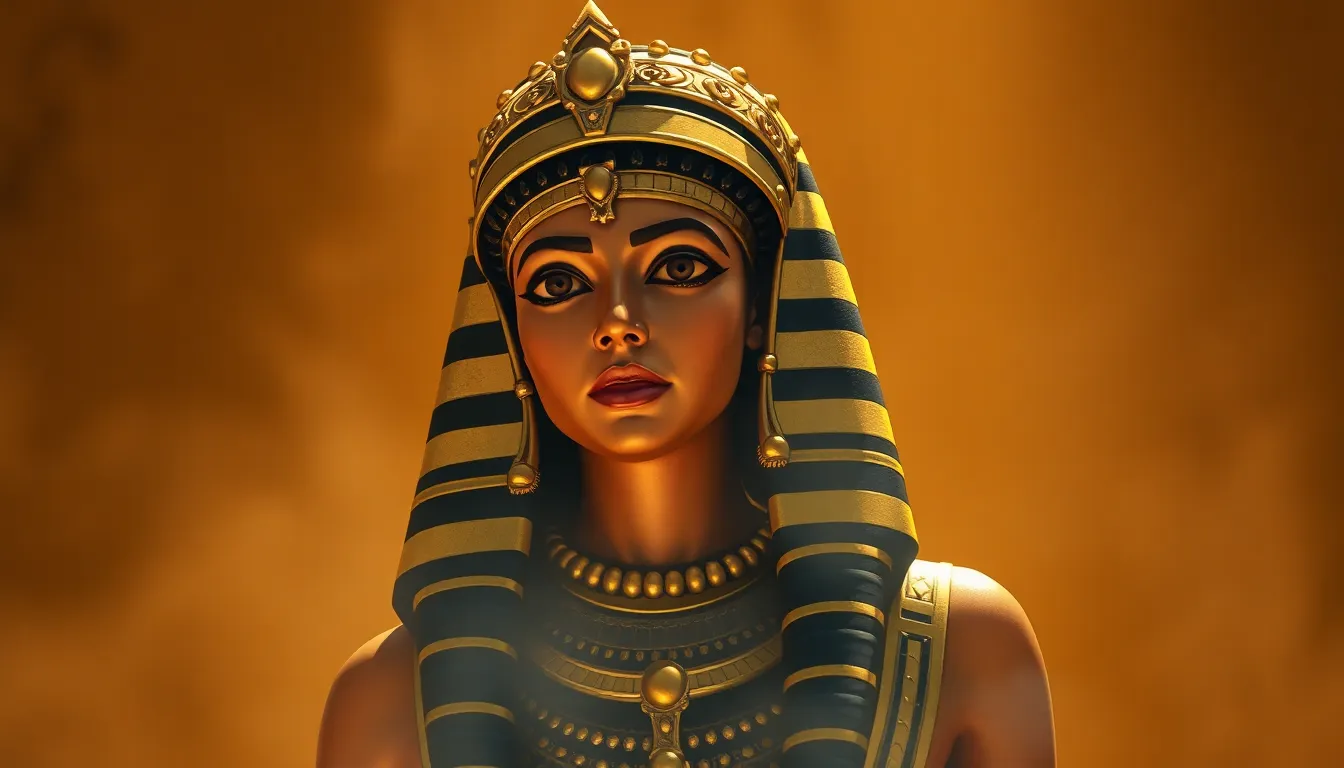The Myths of Pharaoh Cleopatra’s Cultural Impact
I. Introduction
Cleopatra VII, the last active ruler of the Ptolemaic Kingdom of Egypt, has been a figure of fascination for centuries. Her life, characterized by political intrigue, romance, and tragedy, has given rise to numerous myths and interpretations that often overshadow her true historical significance. This article aims to explore and debunk some of the prevalent myths surrounding Cleopatra’s cultural impact, providing a clearer understanding of her legacy.
II. Cleopatra’s Historical Context
To appreciate Cleopatra’s cultural impact, one must first understand her historical context. Cleopatra VII ascended to the throne in 51 BC, ruling alongside her younger brother Ptolemy XIII. As a member of the Ptolemaic dynasty, she was part of a lineage that had a complex relationship with both Egyptian and Greek cultures.
During Cleopatra’s reign, Egypt was caught in the tumultuous political landscape of the Roman Republic. The power struggles in Rome significantly influenced her rule. Cleopatra’s ability to navigate these challenges highlighted her political acumen and helped maintain Egypt’s sovereignty for a time.
III. The Myth of Cleopatra as a Seductress
One of the most enduring myths about Cleopatra is her portrayal as a seductress who used her beauty to manipulate powerful men, particularly Julius Caesar and Mark Antony. This image has been perpetuated through literature, films, and art over the centuries.
- Shakespeare’s play “Antony and Cleopatra” exemplifies this portrayal, emphasizing her allure and romantic entanglements.
- Modern films, such as the 1963 version starring Elizabeth Taylor, reinforce the seductive image while often downplaying her political intelligence.
This myth has had a significant impact on Cleopatra’s cultural legacy, reducing her to a mere object of desire rather than recognizing her as a formidable leader. The seductress stereotype has often overshadowed her accomplishments and contributions to history.
IV. The Reality of Cleopatra’s Political Acumen
Contrary to the seductive myth, Cleopatra was a skilled ruler and diplomat. She was fluent in multiple languages and was educated in various fields, including mathematics, philosophy, and astronomy. Her intelligence and political savvy were crucial in maintaining her reign in a male-dominated world.
Cleopatra formed strategic alliances with powerful leaders to secure her position. Her relationships with Julius Caesar and Mark Antony were not merely romantic; they were calculated moves to strengthen Egypt against Roman domination. Cleopatra’s political strategies included:
- Aligning with Julius Caesar to secure her throne against her brother.
- Forming an alliance with Mark Antony to bolster her military power against Octavian.
- Leveraging her relationships to promote Egypt’s interests in the face of Roman expansion.
These actions demonstrate that Cleopatra was not just a figure of romance but a shrewd political strategist who understood the complexities of power dynamics in her time.
V. Cleopatra’s Contributions to Egyptian Culture
Cleopatra’s reign marked a significant period in the blending of Greek and Egyptian cultures. As a patron of the arts and sciences, she encouraged the flourishing of culture during her time. Her contributions included:
- Promoting the arts, leading to advancements in literature and theater.
- Supporting scientific endeavors, including studies in astronomy and medicine.
- Reviving traditional Egyptian religious practices, emphasizing the importance of Egyptian identity.
Additionally, Cleopatra’s efforts to merge Greek and Egyptian cultures fostered a unique cultural synthesis that influenced art, architecture, and religious practices, leaving a lasting mark on Egyptian history.
VI. The Misconception of Cleopatra’s Ethnicity
Another common misconception about Cleopatra is related to her ethnicity. Many portray her as a quintessential beauty of Egyptian descent; however, historical evidence suggests a more complex heritage. Cleopatra was of Macedonian Greek descent, being a member of the Ptolemaic dynasty, which ruled Egypt after Alexander the Great’s conquests.
The significance of her heritage is crucial in cultural discussions as it challenges the binary views of ethnic identity. Understanding Cleopatra’s background allows for a more nuanced interpretation of her role as a ruler who embraced both her Greek lineage and her connection to Egyptian culture.
VII. The Enduring Legacy of Cleopatra in Modern Culture
Cleopatra’s image has been reinterpreted in contemporary media, reflecting changing social attitudes and perspectives. Her story has been told in various forms, from movies to novels, often emphasizing different aspects of her character.
Moreover, Cleopatra has become a symbol of female empowerment and feminism. Her ability to wield power in a patriarchal society resonates with modern audiences seeking strong female figures in history. Some notable representations include:
- Film adaptations that highlight her political savvy over her romantic exploits.
- Literary works that explore her complexities as a ruler and a woman.
This reimagining of Cleopatra’s legacy contributes to ongoing discussions about women’s roles in history and the importance of recognizing female agency.
VIII. Conclusion
In summary, the myths surrounding Cleopatra VII often overshadow the realities of her cultural impact. From her portrayal as a seductress to misconceptions about her ethnicity, these narratives have shaped public perception for centuries. Understanding the truth about Cleopatra’s political acumen, contributions to culture, and enduring legacy is essential for appreciating her role in history accurately.
Ultimately, Cleopatra remains a powerful figure whose life reflects the complexities of leadership, identity, and cultural synthesis, reminding us of the importance of critically examining historical narratives.




